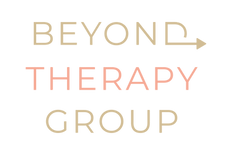WHY GRIEF COUNSELING IS ESSENTIAL FOR HEALING
Grief affects everyone differently, and the shock, disbelief, intense sadness, anger, guilt, and physical symptoms after a big loss can feel overwhelming. Most people experience grief reactions that follow their own timeline, moving through stages of denial, anger, bargaining, depression, and acceptance in non-linear ways. Many go through the grief process following the death of a loved one, loss of a relationship, loss of a job or community, or loss of a pet. Other examples of grief are grieving the life you thought you would have, the person you thought you would become, and the "way things were supposed to be.
PROFESSIONAL GRIEF THERAPY IS ESSENTIAL WHEN:
- Emotions become unmanageable: Overwhelming feelings of isolation, loneliness, emptiness, sadness, anger, or guilt that interfere with daily living require professional help to develop healthy coping strategies.
- Physical symptoms persist: Grief shows up through sleep disturbances, appetite changes, fatigue, and physical pain that affects your ability to cope with daily responsibilities.
- Complicated grief develops: When grief symptoms persist beyond 12 months without improvement, prolonged grief disorder may require specialized treatment to prevent further complications.
- Relationships suffer: Difficulty with family and friends due to intense grief reactions can lead to isolation and more emotional distress.
- Life becomes unmanageable: When grief starts to affect your ability to work, care for yourself, or perform basic life functions, professional support is crucial for recovery.
Seeking help from a qualified grief counselor gives you evidence-based tools to process your emotions safely while developing coping skills for long-term healing.
OUR GRIEF THERAPY SERVICES
Individual Grief Counseling
One-on-one therapy sessions address your unique grief reactions and the circumstances of your loss. Our experienced counselors create a safe space for you to express big emotions without judgment while developing personalized coping strategies. Individual sessions focus on processing the reality of your loss, addressing feelings of guilt or anger, and rebuilding your sense of self after someone has died.
Complicated Grief Treatment
Specialized therapy for individuals experiencing prolonged grief disorder beyond 6 months. This evidence-based approach combines cognitive behavioral techniques with acceptance strategies to address persistent yearning, difficulty accepting the death, and intense preoccupation with the deceased person. Treatment helps you process the traumatic aspects of the loss while gradually re-engaging with life activities and relationships.
Sudden Loss Support
Targeted support for sudden, unexpected losses that create shock and trauma responses alongside grief reactions. This approach addresses intrusive memories, anxiety symptoms, and difficulty processing the circumstances of the death. Traumatic grief therapy helps stabilize your emotional responses while giving you tools to cope with overwhelming memories and feelings.
Family Grief Counseling
Comprehensive support for families navigating loss together, addressing how grief affects family dynamics and relationships. Family sessions help members understand different grief reactions, improve communication during difficult times, and develop collective coping strategies. This approach recognizes that losing a family member affects the whole family system and requires coordinated support.
OUR EVIDENCE-BASED GRIEF THERAPY APPROACHES
Cognitive Behavioral Therapy (CBT) for Grief
CBT focuses on identifying and challenging negative thought patterns that complicate the grieving process. This approach helps you recognize distorted thinking about the loss, guilt, or self-blame while developing healthier perspectives. CBT techniques include challenging catastrophic thoughts, addressing feelings of responsibility for the death, and developing realistic expectations for grief recovery. Sessions focus on building practical coping skills to manage big emotions and anxiety symptoms.
Acceptance and Commitment Therapy (ACT)
ACT encourages mindful acceptance of grief emotions rather than avoiding or fighting them. This approach teaches you to acknowledge big sadness, anger, and other feelings as natural responses to loss while committing to values-based actions. ACT techniques include mindfulness exercises to stay present with difficult emotions, acceptance strategies to reduce struggle against grief, and commitment processes to re-engage with meaningful activities and relationships despite ongoing pain.
Prolonged Grief Disorder Treatment
Specialized intervention for complicated grief that significantly impairs daily functioning. This structured approach combines exposure techniques to process avoided memories with cognitive restructuring to address maladaptive beliefs about the loss. Treatment includes revisiting memories of the deceased person in healthy ways, addressing avoidance behaviors, and developing new routines and goals. Sessions focus on maintaining a connection to your loved one while building a meaningful life without their physical presence.
Interpersonal Therapy (IPT) for Bereavement
IPT addresses how grief affects your current relationships and social connections. This approach recognizes that losing someone close often disrupts your entire social network and sense of identity within relationships. Treatment focuses on processing the loss, addressing changes in social roles, and strengthening existing relationships. IPT helps you communicate your needs to family members and friends while building new supportive connections.
Mindfulness-Based Grief Therapy
Mindfulness techniques help you stay present with grief emotions without becoming overwhelmed by them. This approach teaches breathing exercises, body awareness, and meditation practices to manage big feelings and physical symptoms. Mindfulness therapy addresses the tendency to avoid grief through distraction or to get stuck in rumination about the loss. Sessions focus on developing a compassionate relationship with your grief while building emotional regulation skills.
WHEN TO SEEK PROFESSIONAL GRIEF SUPPORT
Get Professional Help Immediately When:
- Grief symptoms persist beyond six months without noticeable improvement in your ability to function
- You have thoughts of joining your deceased loved one or other self-harm ideation
- Alcohol or substance use becomes your primary coping strategy for managing grief emotions
- Complete inability to accept the reality of the loss or persistent denial affecting daily functioning
- Severe depression symptoms, including hopelessness, worthlessness, or inability to experience any positive emotions
- Panic attacks, severe anxiety, or intrusive traumatic memories related to the death
- Complete social isolation or inability to maintain any relationships with family members or friends


Get Professional Support When:
- Big emotions feel unmanageable, even several months after the loss
- Physical symptoms like sleep disturbances, appetite changes, or chronic pain persist
- Difficulty returning to work, school, or other important life responsibilities
- Strained relationships with family members due to different grief reactions or coping styles
- Uncertainty about whether your grief reactions are normal or concerning
- Previous experiences with loss that complicate your current grieving process
- Need for additional coping strategies beyond what friends and family can provide
OUR GRIEF THERAPY PROCESS
Step 1: Grief Assessment
Your journey begins with a comprehensive evaluation of your grief symptoms, the circumstances of your loss, and how grief is impacting your daily life. Our therapists assess for signs of complicated grief, major depression, anxiety disorders, or other mental health conditions that may require additional treatment. This includes understanding your relationship with the deceased, previous experiences with loss, and current support systems. We review your coping strategies, physical symptoms, and any concerning behaviors such as alcohol use or social isolation.
Step 2: Treatment Planning
Based on your assessment, we will work with you to develop a treatment plan that addresses your specific needs and goals. This includes selecting the right therapy approaches, session frequency, and setting realistic expectations for recovery. We discuss how different types of therapy might benefit your situation and create a timeline for addressing various aspects of your grief. Your treatment plan is flexible to accommodate changes in your symptoms or circumstances as you progress through therapy.
Step 3: Active Therapy and Skill Building
Regular therapy sessions focus on processing your emotions in a safe space while building essential coping skills. You'll learn techniques to manage big sadness, anger, and anxiety while developing healthy ways to honor your loved one's memory. Sessions include practicing communication skills for difficult conversations with family members, developing routines to manage daily stress, and exploring how your identity and relationships have changed since the loss. We address both emotional processing and practical life management skills.
Step 4: Integration and Relapse Prevention
As you progress in therapy sessions, focus on integrating new coping skills into your daily life and preventing relapse. We review your progress, address any remaining challenges, and develop plans for managing future grief triggers like anniversaries or holidays. This phase emphasizes building confidence in your ability to cope independently while maintaining the gains you've made. We establish ongoing support options and discuss when to seek additional help if needed.

Grief Loss Therapy FAQs
The length of grief therapy varies greatly based on individual circumstances, the nature of the loss, and your personal healing process. Most people benefit from 3-6 months of regular sessions for uncomplicated grief, while complicated grief or prolonged grief disorder may require 12-18 months of specialized treatment. Some people find short-term support sufficient, while others benefit from longer-term therapy to address multiple losses or underlying mental health conditions. Your therapist will review your progress and adjust the treatment timeline based on your needs and goals.
Get Started Today
Contact Beyond Therapy Group for Grief Support
Our grief counselors know how hard it is to lose someone you love and are here to offer supportive, research-based help for your healing.
Call or email to learn more about our grief therapy services and connect with our compassionate team of professionals who help individuals and families navigate loss with grace and hope.
Don't go through grief alone. Professional help can make all the difference in processing this loss and rebuilding a meaningful life while honoring your loved one.

